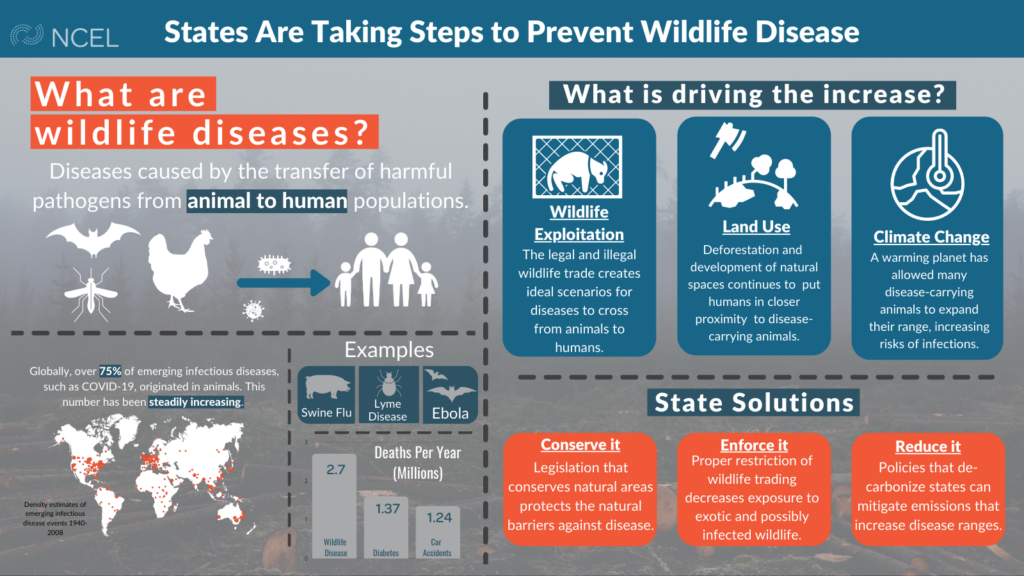
Policy Update
Oregon Passes Wildlife Disease Legislation
March 15, 2022
On March 2, Oregon enacted a law to prevent the spread of future wildlife diseases. The bill HB 4128, sponsored by Representative Ken Helm, directs the Legislative Policy and Research Office to prepare a report on Oregon’s current framework for preventing wildlife disease transmission. It directs the State Fish and Wildlife Commission to review and update restrictions for the import and trade of wildlife that pose an elevated risk. The bill also restricts live animal markets in the state where non-farm live animals are sold for human consumption.
What Are Wildlife Diseases
Wildlife or zoonotic diseases are pathogens carried by wild and domestic animals which have the potential to be transmitted to humans, causing infections and possibly future pandemics. Examples include COVID-19, Ebola, HIV, Zika virus, bird flu, and many others.
The deforestation and development of large swaths of natural areas, the exploitation of wildlife, and climate change have led to an increase of zoonotic diseases spilling over from wildlife to human populations. As a result, 75% of all new infectious diseases now come from wildlife.

Other State Action
In 2021, at least six states considered legislation including California, New Hampshire, New Jersey, New York, Oregon, and Washington. Legislation included restrictions on in-state trade of wildlife, restrictions on the operation of live animal markets, and implementation of a one health intergovernmental task force. Learn more about previous state efforts: https://www.ncelenviro.org/articles/states-working-to-prevent-spread-of-wildlife-diseases.